What Real Unity Looks Like: Pope Francis & Foot Washing
BY SAMANTHA YANITY | March 29, 2016
It seems as though every waking hour there is another layer of destruction and carnage spread across the globe. Families have been torn apart by war, acts of terror, and sheer hatred. Hateful rhetoric slices through our news outlets fueling the vilest of xenophobic discourse and yet here we remain living our daily lives. The world keeps spinning. Those of us lucky enough to be untouched by violence feel frozen with helplessness and aching for the broken world that needs healing. What can we do for our brothers and sisters in such a world as this?
“Each of us has a story, each of you has a story you carry with you. Many crosses, many sorrows: but also an open heart that wants brotherhood,” Pope Francis said in the closing remarks of his Holy Thursday homily after performing the foot washing ritual at Castelnuovo di Porto refugees center. Pope Francis washed the feet of eleven migrants both women and men from different faith backgrounds (Muslims, Coptic Orthodox, Hindu, and Catholics). That evening he spoke of brotherhood reminding us that all of two gestures of human life that are reflected in the final hours of Jesus’ life: betrayed and servanthood.
As Pope Francis has pointed out in his homily, we can live our lives two ways. Either we serve one another as Jesus did, or we betray our brother like Judas did. One act brings unity, and the other brings division. Pope Francis encourages all of us to embrace one another as Jesus did as brothers and sisters. We truly serve one another like Jesus did and remember that Jesus even washed the feet of the one who betrayed him.
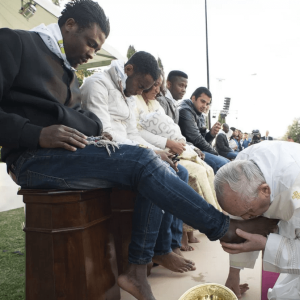 Watching the footage of the foot washing, I was moved by the faces of those in the crowd who wiped away tear soaked cheeks of joy, peace, and comfort. I thought of what St. Paul urges in his letter to the Galatians, “Bear in one another’s burdens and so fulfills the law of Christ.” When we share in the sorrows and pain of others, we do what Jesus did for us on the cross. Jesus shed his blood for all for the forgiveness of sins and in doing this, he also suffers with us as we endure our daily crosses.
Watching the footage of the foot washing, I was moved by the faces of those in the crowd who wiped away tear soaked cheeks of joy, peace, and comfort. I thought of what St. Paul urges in his letter to the Galatians, “Bear in one another’s burdens and so fulfills the law of Christ.” When we share in the sorrows and pain of others, we do what Jesus did for us on the cross. Jesus shed his blood for all for the forgiveness of sins and in doing this, he also suffers with us as we endure our daily crosses.
Why is foot washing so significant? Feet are the lowliest and dirtiest parts of a human. In washing each others’ feet, we not only embrace the deepest parts of their human dignity, but we reveal that we fully embrace every part of their being. If we can wash the feet of those who share nothing in common with us, we embrace the deepest parts of both their hearts and ours. Pope Francis’ act of washing the feet of war-torn migrants, who represent our greatest fears (war, terrorism, displacement), reminds us that we are all brothers and sisters. In performing this act as Jesus once did for his disciples, Pope Francis not only revealed Jesus to them by showing them love and compassion, but he showed the world what real unity looks like.
All of us are called to love another. In our daily lives, it is important to seek out daily opportunities to wash someone’s feet. These deeds do not have to be large ones. Any gesture of compassion of love no matter the size is, even if it is merely exchanging a smile with a stranger, brings us closer to unity. Small steps eventually lead to the conquering of mountains. Change always begins with small steps. What we must do is start with our hearts. Every day we are given the opportunity for a few moments of silence and reflection. In those moments of reflection, we can carefully examine our hearts and conscience and ask the Lord who he might be sending us to serve that day. Remember as you go out into the world, as Pope Francis said, there are two gestures: betrayed and foot-washing. Will my actions bring more division or unity?
Samantha is currently earning an M.Div and M.A. in social justice at Loyola University Chicago’s Institute for Pastoral Ministry.

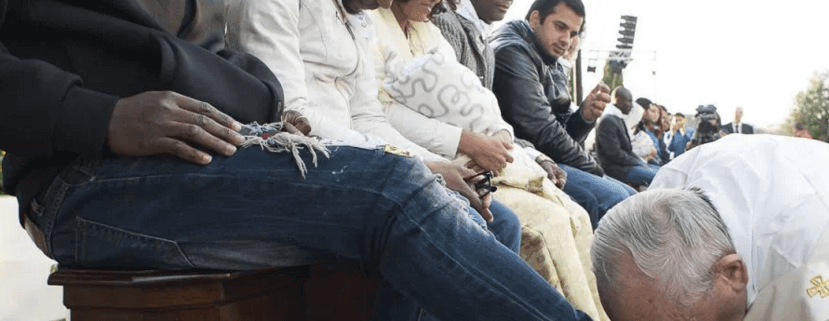
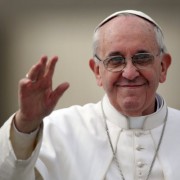
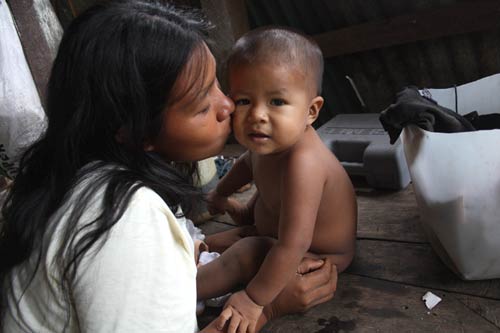

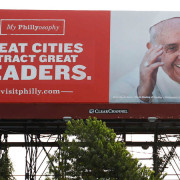
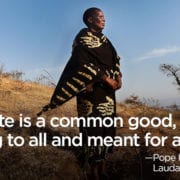
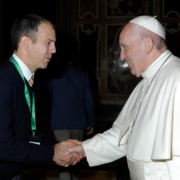



It is worth asking at least whether or not the fact that Jesus washed the feet only of his disciples, and followed it up with the command that they do likewise FOR EACH OTHER, i.e., within the household of the faith, not to mention his subsequent words that they “love EACH OTHER”, so that, in this way, “all people will know you are my disciples”–again, it is worth asking…at least…is it not?…whether all this is significant, and whether what the pope is doing veers, in terms of Christian object lesson, from what Christ was, essentially, telling his followers.
Someone may object: “Oh, so you’re saying Jesus told Christians only to love Christians?!” To which (silly, knee-jerk) objection, the obvious answer is no. If we care to genuinely engage intelligently with the act Jesus committed, and listen to His own (!) interpretation, then certain conclusions turn out to be self-evident. Jesus told Peter there was no need to wash his hands and his head because a person who’s just had a good bath doesn’t need a bath all over again; all he needs to do is wash the dust of the road off of his feet. (And the Lord added that not all in the room had had the all-important “bath”, referring to His betrayer Judas.). Then He went on to tell his disciples they must do for each other what He had done for them. Clearly, the all-cleansing bath is Christ’s unique, unrepeatable saving act of atonement/redemption; it goes to the very core of the imbedded, fatal Sin and drives it out. That is our “bath”. It can only happen once. But along life’s road, as we follow Jesus, we do indeed pick up dust–we sin, we yield to unworthy, unholy impulses and temptations–and we come back to the Lord for forgiveness and cleansing.
In what was obviously a viscerally jarring, painfully humiliating object lesson, Jesus portrays the love with which believers must attend to each other’s spiritual journey, and, astoundingly, CONFERS upon them the honor and duty to help each other along the way of sanctification, to wash the “dust of the road” from each other’s hearts and minds. What’s important here is, this is something that believers do for believers. It is entirely within the context of a shared faith and common journey.
While the pope is well-intentioned, I fear that his public act profoundly misrepresents–dare I say, violently distorts–the very core and intrinsic import of Jesus’ own act. Moreover–and I really, really DON’T like saying this…yet I think I must–I cannot squelch a certain cynicism over a very public, very celebrated, ritualized act of “profound humility”. In the Sermon on the Mount, Jesus warns against the long flowery prayers recited on street corners, for all to hear and admire. When Jesus washed his disciples’ feet, including the feet of the one who wasn’t “clean”, there were no cameras around, and the only audience on hand was genuinely shocked, embarrassed, even appalled. How can we observe this annual papal tradition, therefore, without being awkwardly aware of the difference (a difference only heightened by the distortion of the essential lesson Christ invested in it), aware of a certain contrived, self-conscious artificiality in it all?